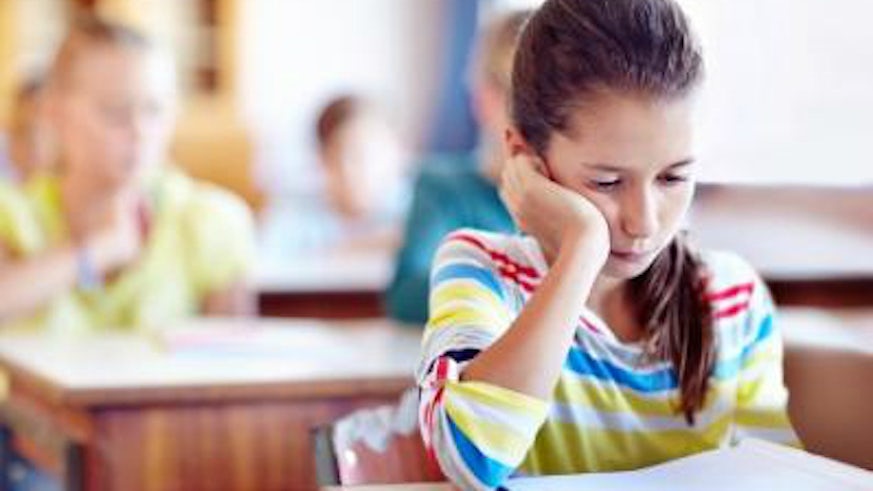CBT in school reduces childhood anxiety
15 July 2014

Introducing lessons in cognitive behavioural therapy (CBT) in primary schools would significantly reduce anxiety levels among 9 – 10 year olds, according to new research published today in The Lancet Psychiatry.
The study, from researchers at Cardiff University and the Universities of Bath, Oxford and Exeter, suggests that anxiety prevention programmes delivered in schools for Year 5 pupils significantly reduce anxiety symptoms. Moreover, it highlights that such lessons benefit all children, regardless of their initial anxiety level.
Lessons in CBT involve teaching children how to identify and manage their emotions and to replace their anxious thoughts with more helpful ways of thinking. It also involves developing their problem-solving skills to better confront and cope with anxiety provoking situations and events.
Anxiety in children is very common and is something that impairs their day-to-day lives and increases the risk of severe mental health disorders in adulthood. The paper mentions previous research suggesting that by the age of 16, 10 per cent of children are affected by an anxiety disorder.
Whilst effective psychological interventions are available comparatively few children with anxiety disorders are identified and referred for treatment. This poor reach and availability has led to increased interest from education leaders and policy-makers to establish more proactive, preventive approaches.
Lead author, Professor Paul Stallard of the University of Bath's Department for Health, explains: "Schools provide a convenient location to deliver emotional health prevention programmes for children.
"Whilst there are a number of school based programmes few have been scientifically evaluated to determine what effect they have on children's emotional health. The results of our study are very encouraging and show that FRIENDS*, a CBT programme, teaches children skills to effectively manage their anxiety."
Through their project, 'Preventing Anxiety in Children through Education in Schools' (PACES)**, the researchers conducted a randomised controlled trial to test the effectiveness of CBT lessons for 9-10 year old children. The researchers enrolled 1362 children from 40 state-funded junior schools in South West England and followed them for one year.
School year groups were assigned to receive either classroom based CBT lessons led by teachers, CBT lessons led by health facilitators, or standard school provision***.
The nine, one hour CBT lessons were provided to whole classes of children as part of the school curriculum.
Professor Harry Daniels, from the Department of Education at the University of Oxford added: "These are important findings. The intervention offers an affordable and practical response to the challenges of promoting emotional health in schools. The need to improve the mental health of children is being increasingly recognised as a global priority given the associated health risks, and the economic and social costs, if such anxieties are not dealt with early on."
In the 40 participating schools, the researchers found that training teachers and school staff to deliver CBT lessons was not as effective as delivery by health professionals from outside of the school. The team are now assessing whether these reductions in anxiety are maintained after children transfer to secondary school.